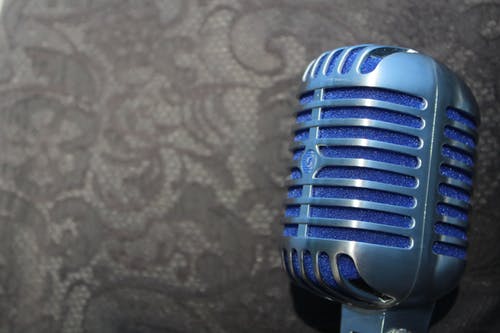 I think that there are many reasons why people choose singing as their primary career early on. Perhaps it’s simply a love of music, or a desire to perform. Or maybe it’s just a need to be heard. In my case, it was probably a bit of all three.
I think that there are many reasons why people choose singing as their primary career early on. Perhaps it’s simply a love of music, or a desire to perform. Or maybe it’s just a need to be heard. In my case, it was probably a bit of all three.
I think that there is no more intimate connection in art than the human voice. It invites you to come closer, to focus in, to listen and to comprehend. It communicates not just information, but point of view. It takes words off the page and infuses them with thoughts, feelings and content~ factual, imaginary and emotional. It soothes, cajoles, confronts, invites, flirts, demands, bemoans and embraces. It does so with words, with breath, with pitch and with tone. There is no end to the palette the human voice possesses, or the picture it’s able to paint.
This, on some subconscious level, is what drew me to working with my voice. For me, singing was like drawing breath- I could not conceive of living without it. And certainly in my twenties, I needed to self-express. What better way to confront a thoughtless lover, or to celebrate the arrival of a new one? How better to express the overall state of meaning and of life? A well-written lyric was my monologue. Music was my messenger.
I feel that there is unique relationship between music and lyrics. There is a companionship that needs to exist in order for it all to make perfect musical sense. I have come to understand as a singer and as a lyricist, that the lyric needs to marry the music. What exactly does that mean? It can best be explained in the structure of a musical phrase. Is the phrase lyrical, legato, driving, percussive or staccato? Where does the musical accent fall? How is it phrased? What is the music trying to say? All of these things determine not only where the lyric is placed, but also how the lyric should fit into the music. In other words, does the lyric “sing well”?
Often, I hear a lyric that is completely literal. And it jolts me out of the musical experience. In my opinion, lyrics are poetry, meant to allow the meaning to be indicated rather than obviously and blatantly stated. The lyrics, like the music, should take the listener on a journey.
Isn’t this also true when reading an engaging piece of literature? Or when one is having a deep and meaningful conversation? Language tells a story. Words matter.
As I moved into voiceovers, I found that many of these musical elements applied to reading copy. In a song form, there is a first verse, a second verse, a bridge and a final verse. As a lyricist, I generally look at it this way: The first verse establishes a point of view- or a set up. The second verse develops that. The bridge tends to comment on the verses, or perhaps expand the lyrical idea into a slightly different direction. The last verse finalizes the idea and puts a period on the end of the sentence.
In voiceover copy, a similar breakdown occurs. There is a set-up, a body and a conclusion. Or a problem, some information about the problem, and a solution to the problem. There is a rhythm to the content. Similarly, there should also be an emotional point of view and a feeling about the content. This is no different than singing a lyric. One must be connected to not only the words on the page, but also the emotional point of view attached to them. As I have often told my voiceover students, the client is not necessarily looking for a voice, but looking for a character or a personality; In other words, someone who can breathe meaning into the copy on the page. No matter how benign one might think reading some commercial copy may be, it’s the voice actor’s job to not only find the meaning in the copy, but to mean what you say.
There is also a similar element to music – at least for me- when I am reading copy. There is phrasing, rhythm, nuance, pitch, breath, and emotional point of view. Where does the breath belong in the phrase, and why? Is the rhythm of the read repetitive (in time) or conversational (rubato)? Which words get the accent? How does the line or phrase unfold? Where does it land? Sometimes it’s difficult to get a student to understand the similarities between copy and conversation. How do you read something without sounding like you’re reading words off of a page? The same way one might sing a lyric. It needs to be internalized, personalized and felt. At the end of the day, it’s as much about personal point of view as it is about technique. And it’s always about nuance. It’s never about “performing” or about wondering how it will be perceived or received. But rather, whether or not you’re showing up and telling the truth.
Language is a tool for communication~ Whether spoken, sung, written or read. The voice is its instrument.

